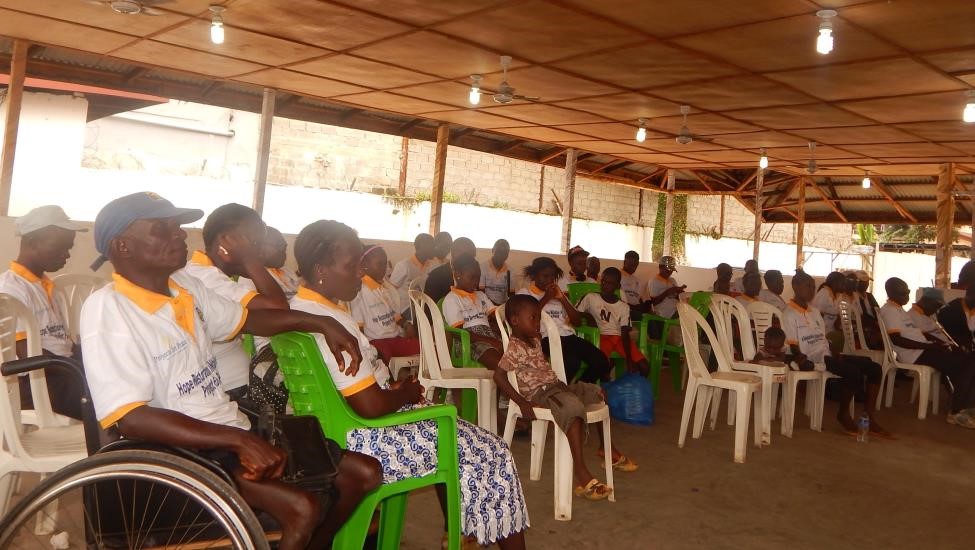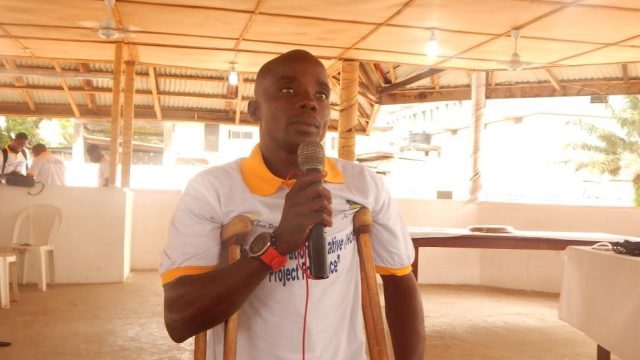MONROVIA, Montserrado – Several young people living with disability in Monrovia have expressed preparedness to vote in the October elections, after participating in a four-day civic education training.
Many of the participants of the Hope for Restoration Initiative civic education workshop said they had intended to boycott the elections because they felt disappointed that they had nothing to benefit from the government.
Benjamin Gibson, a visually impaired resident of Monrovia, told The Bush Chicken last Thursday that the training allowed him to understand that he has the power to bring change in society, as he can vote for people who are passionate about Liberia and who understand the plights of the disabled.
“I have learned so many things about my rights and my responsibilities as a citizen, even with a disability,†Gibson said.
He praised organizers of the event for thinking about the disabled as it relates to the elections.
Zoegar Railey, a physically challenged youth, also said he feels disappointed that despite existing laws on the rights of people with disability, the government still does not do enough to allow people living disabilities to become independent.
“I have acquired skills in carpentry, tailoring, tie and dye and shoe repairing, but none of them have given me employment,†he said.
He currently owns an informal business, but said proceeds from his venture barely sustain his family, including his wife and five children.
Railey stressed the need to continue to advocate for people like him.
The Hope for Restoration Initiative civic education workshop began last Monday and was organized by Emmanuel Gweamee and Aime Laurent Twizerimana, two students of the University of Rochester in the U.S.
It is supported by Projects for Peace, an initiative inspired by the late Kathryn W. Davis, an American philanthropist who on the occasion of her 100th birthday, chose to celebrate by committing US$1 million for 100 Projects for Peace, using students at universities in the U.S.
Since its founding, Projects for Peace has funded more than 700 projects in more than 100 countries.
Gweamee is a Liberian who became physically disabled during the country’s civil crisis because he could not access medication. He said as part of the proposal for the Davis Project for Peace, he and his friend, Twizerimana, who is a Rwandan, chose to focus on people with disabilities in Liberia, especially during elections.
“The workshop actually focused on the rights of people with disability in line with the constitution and the UN Convention on the rights of people living with disabilities,†he said.
“This for me is a way of giving back to my country.â€
He said the project marks the beginning of a long relationship with young people living with disability in Liberia.
“For the next phase of this program, we have allotted at least US$1,000 to provide transportation for people with disability who might have [challenges getting transportation] to their voting centers to vote on Election Day,†he said.
He said the second phase would be implemented in partnership with the African Youth with Disability Network in Liberia.
For his part, Twizerimana said he appreciated working with young people in Liberia because he is also an African.
He hopes to see a future where people with physical and visual impairments can be equally accepted in society with opportunities to be employed.
Featured photo by Gbatemah Senah


